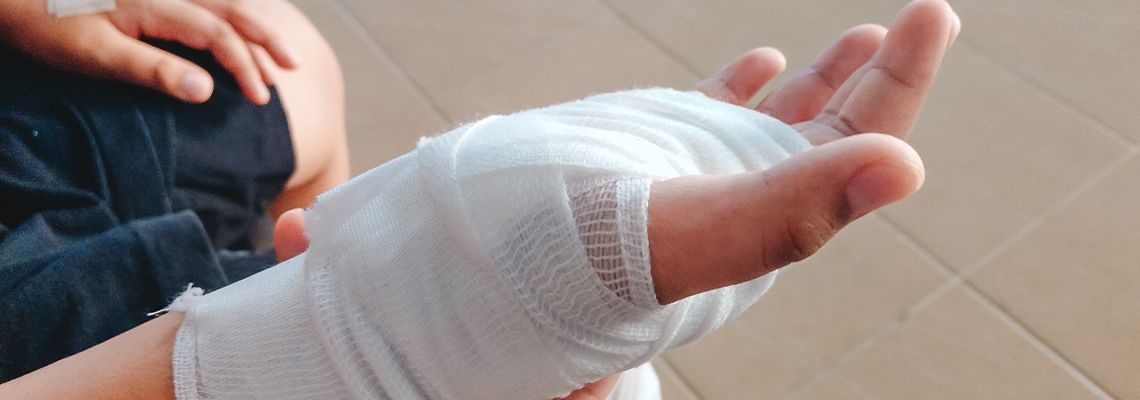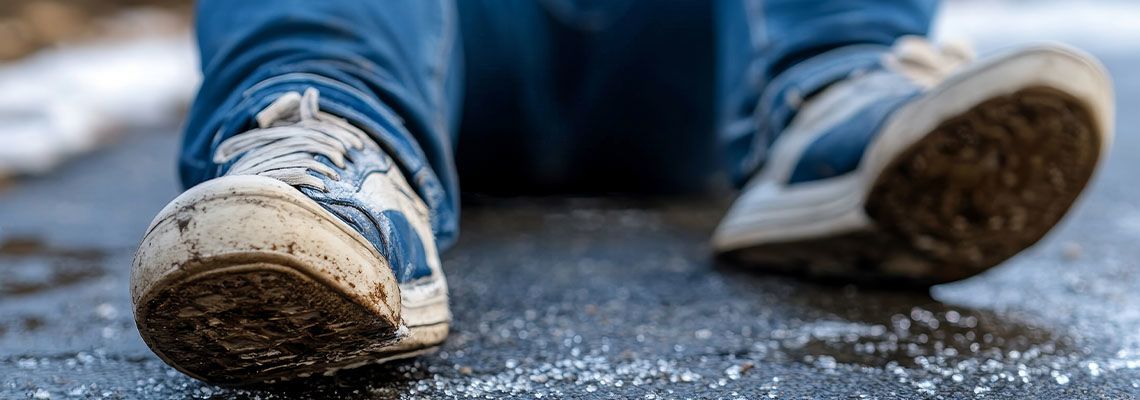When you walk into a store, visit a friend's apartment, or grab dinner at a restaurant, you expect the space to be safe. Unfortunately, dangerous conditions exist, and accidents happen.

The Importance of Medical Documentation in Personal Injury Cases
Medical documentation is one of the most significant factors that can influence your claim in a personal injury case. It serves as direct evidence of injuries, provides support for the financial compensation claimed, and establishes the connection between the accident and the resulting harm.
Whether you’ve been in a car accident, suffered a workplace injury, or encountered a slip-and-fall incident, having thorough, detailed medical records can directly impact your ability to recover compensation for damages.
Antaramian Law, APC is here to help California residents across Los Angeles, Riverside, San Bernardino, Orange County, Ventura County, and Kern Counties with their personal injury cases. The firm has years of experience on both sides of personal injury litigation and strives to help real people and their families as they rebuild after devastating injuries.
Why Medical Documentation Matters in Personal Injury Cases
Medical records are more than just paperwork. These documents illustrate your injuries and validate your story when pursuing legal action or damages. Some of the primary reasons medical documentation matters include:
Proof of Injury
When you file a personal injury claim, your medical records provide concrete evidence of your injuries. They list your diagnosis, treatment plans, prescribed medications, and progress in recovery. Without them, it is nearly impossible to prove the extent of your injuries or how they affect your daily life.
Establishing Causation
A significant hurdle in any personal injury case is proving that the accident directly caused your injuries. This hurdle can be overcome by detailed medical records. For instance, in a car accident case, medical documentation showing you were treated for whiplash or back pain immediately following the incident connects your injuries to the collision.
Quantifying Damages
Medical documentation lays the groundwork for determining your financial compensation. Records of emergency room visits, surgeries, physical therapy, or long-term disability needs can be compiled to accurately calculate costs. It also includes non-economic damages, such as emotional distress or a reduced quality of life.
Credibility Boost
A detailed and consistent medical history strengthens your case. Frequent follow-up visits and adherence to a treatment plan provide credibility. Insurance companies often attempt to argue that the victim is exaggerating injuries. Comprehensive documentation can prevent these arguments from gaining traction.
Examples of Medical Documentation
Building a strong case involves collecting the appropriate medical records. Some essential medical documentation you should gather to support a personal injury claim include:
Emergency room reports: Documents created after the initial accident are highly impactful since they capture your condition immediately after the incident.
Specialist visit notes: Reports from specialists like orthopedic surgeons, neurologists, or physical therapists provide deeper insights into the scope of your injuries.
Imaging results: X-rays, MRIs, and CT scans offer visual evidence of internal damage and are hard to refute.
Prescription records: Details about prescribed medications, including painkillers or long-term treatments, showcase the seriousness of the injury.
Treatment plans: Therapy or recovery programs prescribed by your doctor reveal the expected duration or severity of the healing process.
Receipts and billing statements: Providing proof of medical expenses is essential to accurately include these costs in your compensation claim.
California Laws and Medical Documentation for Injury Cases
If you're pursuing a personal injury case in California, it's important to understand how state laws affect the use of medical documentation in your claim.
California follows a "comparative negligence" rule, which allows those involved in an accident to seek compensation even if they are partially at fault. However, the amount of compensation is reduced by their percentage of fault.
Additionally, California has a statute of limitations for personal injury cases, which is generally two years from the date of the injury. Failure to file a claim during this time will often render you ineligible to pursue compensation for your injuries.
California's Evidence Code Section 1271 (business records exception) permits medical records to be admissible in court as evidence. It's important to work with medical professionals who keep clear records and follow protocols. Without this, your case may be more difficult to prove.
Under HIPAA (Health Insurance Portability and Accountability Act) and state privacy laws, healthcare providers in California have an obligation to protect your medical records while allowing you access to them. This is how you can obtain the necessary documentation for your case.
Antaramian Law, APC provides the guidance and advocacy you need to pursue justice for your injury. With years of experience representing accident victims, our office understands the strategies used by opposing counsel. This inside knowledge plays a significant role in protecting clients and maximizing compensation.
Personal Injury Attorney in Los Angeles, California
Attorney Andrew Antaramian has over eight years of experience defending insurance companies in personal injury cases. Now, he uses his insider knowledge to help injury victims in California obtain the compensation they deserve, focusing on individuals rather than corporations.
If you're considering filing a personal injury claim, contact Antaramian Law, APC today to schedule a consultation. Located in Glendale, California, the firm serves clients throughout California.
RECENT POSTS
A dog bite can be a frightening and painful event, often leaving victims with physical injuries and emotional distress. In the aftermath, many people are unsure of their rights and what steps to take.



